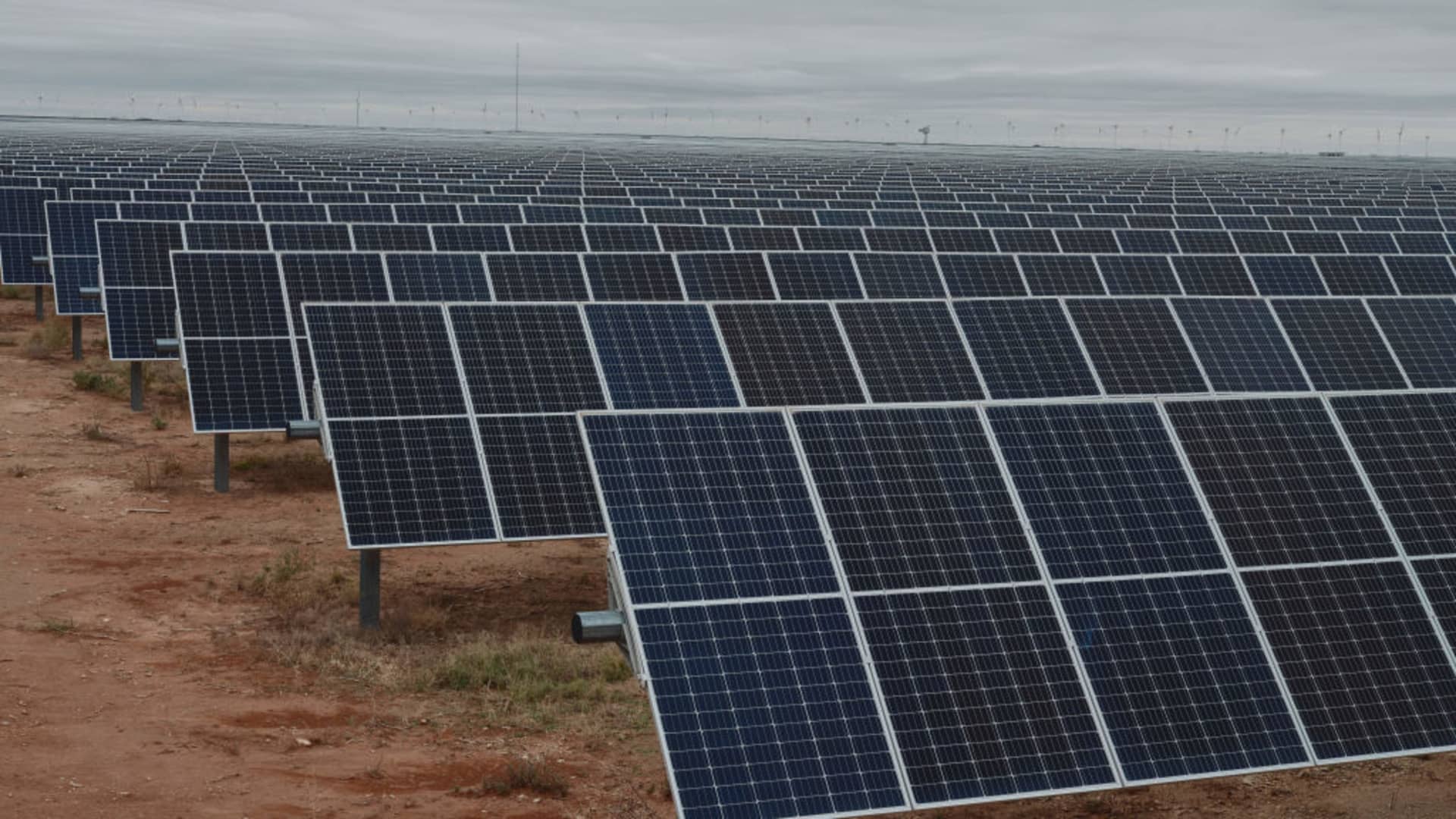The growing electricity demand from corporate America, particularly Big Tech, and the retirement of coal plants across the U.S. is creating a major opportunity for renewable energy, according to UBS. As the two trends coincide, the U.S. will need an additional 850 terawatt hours of annual generation capacity by 2030, according to the investment bank. UBS sees solar and wind supplying 40% and 30% of the power need, respectively, while natural gas will meet the remaining 30%. “Put simply, U.S. renewable builds are largely displacing coal generation,” a team of analysts led by Jon Windham told clients in a research note Thursday. At the same time, “there is a straight line of direct incremental demand and financial support for renewables as corporate electricity demand increases through their 100% clean energy or 100% renewable commitments,” the analysts said. These overlapping trends provide a long runway of growth particularly for utility-scale solar and battery storage that helps to offset the negative impact for higher for longer interest rates in the U.S., the analysts said. Overall, solar is will grow to 12.5% of electricity generation by 2030, up from less than 6% in 2023, according to UBS estimates. Corporate power agreements Amazon , Meta Platforms , Microsoft and Google represented 40% of total U.S.-utility scale over the past five years, with Amazon alone approaching a 20% market share, according to a May report from UBS. But the demand is not limited to the tech sector. Companies as diverse as Nike, Pepsi and Starbucks, among others, also have 100% renewable goals, according to the bank. What makes the tech companies unique is the level of demand as they build out data centers, with artificial intelligence requiring 10 times more electricity than the typical Google search, UBS found. “There is likely a substantial market opportunity to provide reliable electricity generation and direct infrastructure for data centers,” the analysts said. The tech companies are signing power agreements in advance of the build out of data centers with Amazon, Meta, Microsoft and Google having contracted 230 terawatt hours of power, ( combined?) according to UBS estimates. This generation will start coming online over the next two years, according to the bank. “An increasing share of renewable deployments are being financially underpinned by high quality, high growth electricity consumers,” the analysts said. The investment bank sees First Solar as the top beneficiary in the renewable space, due to its dominant position in manufacturing solar modules in the U.S. Other top stock picks include the battery company Fluence Energy and Array Technologies , which manufactures systems that allow solar panels to track the position of the sun.
UBS says renewable energy can meet 70% of electricity demand growth — these stocks benefit











